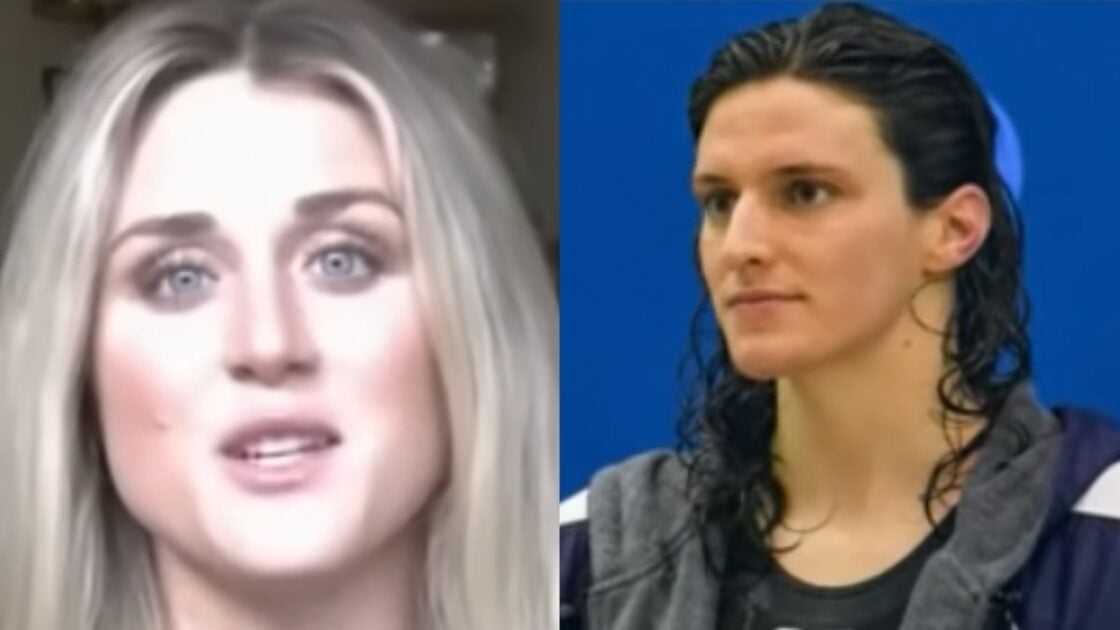
The former college swimmer Riley Gaines has teamed up with over a dozen current and former college athletes to sue the NCAA, the University System of Georgia and others in U.S. District Court for the Northern District of Georgia over transgender policies.
Gaines Announces Lawsuit
“It’s official!” Gaines wrote on social media. “I’m suing the NCAA along with 15 other collegiate athletes who have lost out on titles, records, & roster spots to men posing as women.”
“The NCAA continues to explicitly violate the federal civil rights law of Title IX,” she added. “About time someone did something about it.”
Fox News reported that the plaintiffs in the case include Reka Gyorgy, Kylee Alons, Kaitlynn Wheeler, Ainsley Erzen, Ellie Eades, Lily Mullens, Suzanna Price, Carter Satterfield, Kate Pearson, Katie Blankenship, Julianna Morrow and athletes identified as Swimmer A, Swimmer B, Track Athlete A and Volleyball Athlete A.
In their lawsuit, Gaines and her fellow plaintiffs claim that the NCAA and those involved in the University System of Georgia denied them the promises of Title IX, citing the NCAA’s transgender participation policy as the catalyst behind this.
“… The NCAA has simultaneously imposed a radical anti-woman agenda on college sports, reinterpreting Title IX to define women as a testosterone level, permitting men to compete on women’s teams,” the complaint reads, “and destroying female safe spaces in women’s locker rooms by authorizing naked men possessing full male genitalia to disrobe in front of non-consenting college women and creating situations in which unwilling female college athletes unwittingly or reluctantly expose their naked or partially clad bodies to males, subjecting women to a loss of their constitutional right to bodily privacy.”
The lawsuit goes on to say that the “NCAA has aligned with the most radical elements of the so-called diversity, equity, and inclusion agenda on college campuses, facilitating the NCAA’s effort to shore up its flagging on campus approval ratings in furtherance of the NCAA’s relentless drive to monetize collegiate sport, and diverting attention from the financial exploitation of college athletes by NCAA colleges and universities, all at the expense of female student-athletes.”
Gaines and her fellow plaintiffs are seeking an injunction against the NCAA and the universities who are hosting championship events in 2025 and 2026 stopping them from enforcing the NCAA’s transgender policies.
Gaines Sounds Off – ‘They’re Cowards’
Gaines took up this cause after she was forced to compete against Lia Thomas, a biological male who identifies as a transgender woman, in the 2022 NCAA Championships, according to The Washington Examiner. Since then, she’s devoted herself to become a staunch defender of maintaining the integrity of women’s sports.
“What I want to see from the NCAA, and they haven’t don’t thus far, is take accountability and take responsibility,” Gaines explained after filing the lawsuit. “We’ve seen Charlie Baker testify before (lawmakers) a plethora of times and say that, you know, ‘We don’t really know what the rules are. We don’t really know how we feel about this. We haven’t issued an apology. We’ll just keep working it out on our end.’”
“They’re cowards is what they are,” she added.
ICONS Supports Lawsuit
Independent Council on Women’s Sports (ICONS) has already spoken out in favor of the lawsuit and agreed to fund it in part.
“This lawsuit against the NCAA isn’t just about competition; it’s a fight for the very essence of women’s sports,” ICONS co-founder Marshi Smith said in a statement. “We’re standing up for fairness, for the rights of female athletes to compete on a level playing field. It’s about preserving the legacy of Title IX and ensuring that the future of women’s sports is as bright and as fair as its past.”
At the time of this writing, the NCAA has yet to respond publicly to the lawsuit.